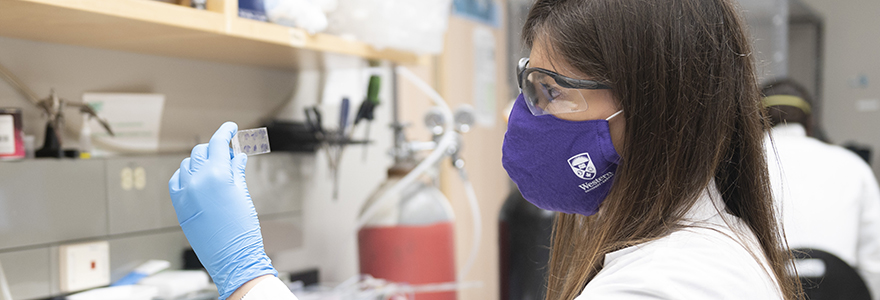Research News: Molecule found in green tea may block negative effects of chronic cannabis use
By Crystal Mackay, MA'05
Since the legalization of medical and recreational cannabis in Canada, experts have sounded the alarm on the negative effects of THC on adolescents’ developing brains. This main psychoactive ingredient in cannabis can have long-term cognitive and behavioural effects on young people, including the development of schizophrenia.
Now, Western researchers have found a substance that may mitigate the harm to chronic cannabis users.
Steven Laviolette, PhD, and his team have found that a compound called L-theanine derived from green tea leaves protected rats against the negative psychiatric side-effects of THC. L-theanine, purified and sold in health food stores, has been shown in previous studies to have properties that protect the brain from damage with no demonstrated side effects.
“What we found was that by administering L-theanine along with THC, we were able to block several side effects of THC exposure, including changes to schizophrenia-related neurochemical pathways, and abnormalities in behaviours – including cognitive and emotional disturbances,” said Laviolette, a professor at Western’s Schulich School of Medicine & Dentistry. “It was exciting to see the extent of those changes and we think this is really quite promising.”
The study was published in The Journal of Neuroscience.
Laviolette emphasizes the research took place in pre-clinical animal models, and research to determine L-theanine's effect on humans has not taken place. The research was funded by MITACS Canada in partnership with CanaQuest Medical Corp., an emerging pharmaceutical company focused on medical cannabis products for the treatment of mental health disorders.
The team says this research provides evidence for combining THC formulations with L-theanine to make them safer for both recreational and medicinal use. In partnership with CanaQuest, Laviolette and his team have filed a patent on a formulation that includes L-theanine and will be moving on to clinical trials. CanaQuest intends to seek approval from Health Canada to market the product for initial use for patients suffering from various Mental disorders.
“The goal here is to produce a safer formulation for THC that is going to give the benefits of THC without the negative psychiatric side effects,” said Laviolette. “This will be especially beneficial for those who are taking THC for things like long-term pain, chemotherapy side-effects or reducing anxiety or depression.”
Adolescents who use cannabis often suffer side-effects, including schizophrenia, because THC dysregulates a neurotransmitter called glutamate. L-theanine works by regulating that neurotransmitter.
“We started looking at L-theanine because there was strong evidence that it has neuroprotective properties, and previous studies haven’t shown any toxicity effects in humans or animals,” said Marta De Felice, PhD, a postdoctoral associate in Laviolette’s lab and first author on the study.









